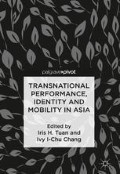Abstract
Lately the universal value of Western classics has been questioned repeatedly. A number of Western politically correct schools of thought insist that all classics must be reinterpreted for local, political, and cultural needs. Some Chinese argue that universality is a veil to cover Westerners’ intention to replace China’s own culture. This chapter, focusing on theater education for all school children, however, stresses the importance of universality over localization or individualization. Unlike the inevitably local politics, pre-college education is an institution that needs universality most, regardless of its socio-political context. The reason why no country, even no city, has made theater courses available to all schools, is that “educational theater” is often too localized/individualized. Western-style educational theater largely shuns sophisticated plays but relies mainly on children’s improvisational creation. A forty-minute lesson can engage only the smartest few to really create something, which is at best rudimentary. Music education, in contrast, can teach every child in every school to sing/play good music, because it uses universally accepted scores/lyrics as the basic textbook.
Modeled after music pedagogy, my team at Shanghai Theatre Academy has begun, since 2014 with dozens of elementary and secondary schools, a pilot project to implement theater courses in the school curriculum, using a series of short rhymed plays based on Les Misérables and other classics as an etude series to be seen and then enacted by children as the first step of their theater education. I believe that both theater and education are based on imitation. And traditional Chinese theater, still more popular than Western-style drama in today’s China, is initially taught to student actors through collective imitation—similar to most music classes. That’s why a new paradigm of theater pedagogy for all schools is more likely to be implemented in China than in the West, using some Western classics seen by the Chinese as universally appealing.
Access this chapter
Tax calculation will be finalised at checkout
Purchases are for personal use only
Works Cited
Barba, Eugenio, et al. 1991. The Secret of Performer: A Dictionary of Theatre Anthropology. London/New York: Routledge.
New Beijing Paper (Xin Jing Bao). Feb. 12, 2015. Head of City People’s Assembly, Yuncheng, Shanxi Province, Delivers Report in 6000 Character Five-Character Poem, February 12.
Author information
Authors and Affiliations
Editor information
Editors and Affiliations
Rights and permissions
Copyright information
© 2018 The Author(s)
About this chapter
Cite this chapter
Sun, W.H. (2018). Is Universality Possible in Content and Pedagogy? Les Misérables as an Etude Series for the School Drama Curriculum. In: Tuan, I., Chang, IC. (eds) Transnational Performance, Identity and Mobility in Asia. Palgrave Pivot, Singapore. https://doi.org/10.1007/978-981-10-7107-2_3
Download citation
DOI: https://doi.org/10.1007/978-981-10-7107-2_3
Published:
Publisher Name: Palgrave Pivot, Singapore
Print ISBN: 978-981-10-7106-5
Online ISBN: 978-981-10-7107-2
eBook Packages: Literature, Cultural and Media StudiesLiterature, Cultural and Media Studies (R0)

